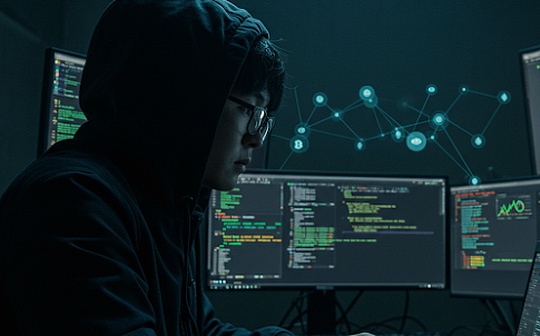Obtained by Alliance, factCheck wants to do a news-fighting version of "Polymarket" | Super early project attention

Reprinted from chaincatcher
03/20/2025·2MAuthor: flowie, ChainCatcher
Recently, factCheck, an emerging betting platform on the Base chain, launched the main network. Compared with Polymarket focusing on predicting bets on future events, factCheck focuses on making real and false bets on facts that have happened.
factCheck calls itself a fact-check market, using financial incentives and artificial intelligence to combat fake news.
According to factCheck founder Prithvir Jhaveri, he hopes factCheck will become a place for users to share new news. In the future, factCheck will be an investigative news platform for "WikiLeaks + Internet capital market".
After receiving investment from Alliance DAO
, what is the background of the factCheck team?
According to RootData data, factCheck received AllianceDAO investment.
Currently, factCheck's publicly disclosed team member is founder Prithvir Jhaveri, a graduate of Duke University and is a serial entrepreneur with a background in finance and AI.
Prithvir Jhaveri worked as an analyst at JPMorgan Chase, later worked as a product manager at an AI company, and also worked as a Silicon Valley incubator Z Fellows.
Judging from Prithvir Jhaveri's Twitter, factCheck's predecessor should be Loch.one, a platform for crypto asset management and intelligence analysis.
Loch.one provides real-time on-chain data analysis tools, where users can track wallet addresses, monitor asset performance and obtain new token dynamics. In addition, Loch.one has also made a fact-checked bet on the market.
Loch.one should currently focus only on fact-checking betting markets and set up a new brand factCheck.
The official website of Loch.one directly guides users to factCheck. Prithvir Jhaveri has not mentioned the reasons for the shift in business focus.
How to use AI + C ****rypto to combat
news counterfeiting?****
Fighting against news is not an emerging business model. In the traditional field, a large number of such websites emerged around 2000.
FactCheck.org, a non-profit fact-check website with the same name as factCheck, was founded in 2003 and has a good reputation internationally. FactCheck.org won several Webby Awards for revealing deception and lies by public officials.
But these fact-checking websites also face some pain points.
First, the revenue model, which mainly relies on foundation donations, corporate funding, personal donations, etc. But accepting this model of relying on external funds may raise public doubts about its independence and objectivity.
Second, the scope and means of investigation are limited. Most of the influential fact verification websites focus on the political field, and the investigation and verification methods or sources of information are also single, relying on journalists and researchers, or crowdsourcing models.
Third, the verification results are controversial. For example, the judgment of certain complex issues may be subjective. Especially on some politically sensitive issues, the verification results may be questioned by people from different political factions. In addition, sufficient expertise and authority may be lacking in handling some verifications involving scientific or technical issues.
factCheck actually moves traditional news fakes to the chain, and uses Crypto to record the verification process, ensure transparency, motivate participants, and accelerate the efficiency of news verification through AI.
Prithvir Jhaveri mentioned that trusted neutral AI Agent can automatically browse the web pages for evidence, and if you do not agree with the results of AI verification, users can provide convincing evidence to convince them.
Prithvir Jhaveri believes that in this way, it takes several seconds to create or join a fact-check market, and accountability has increased by 100 times due to transparent results. Furthermore, it is impossible to play with the system without verifiable evidence, and each statement is a fair competition for truth.
However, whether AI can really accurately verify the authenticity of news will take time to verify. Moreover, compared with Polymarket's bet on predicting specific future events, the more difficult and completely objective content such as the authenticity of news, which may cause greater controversy.


 jinse
jinse

